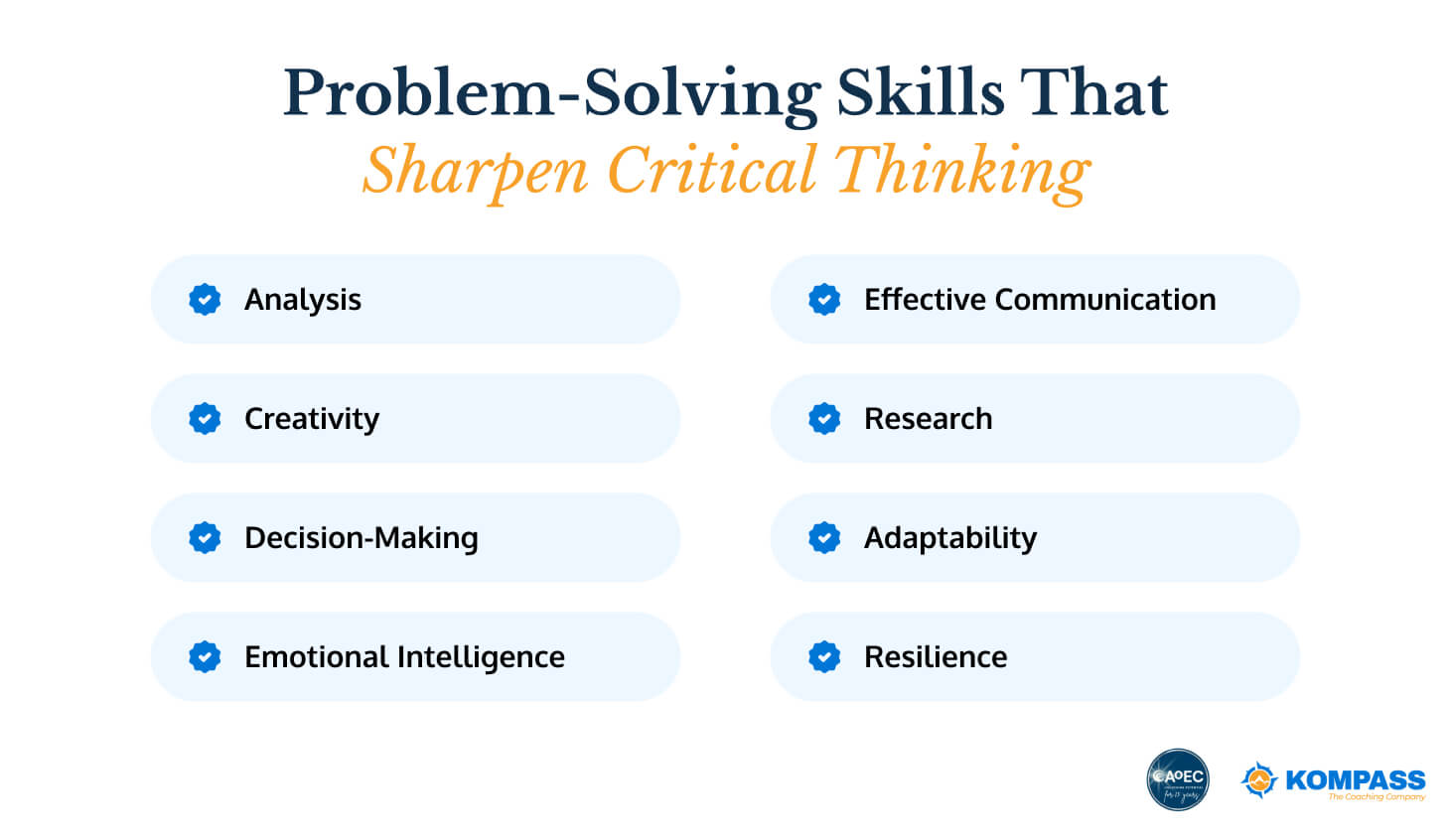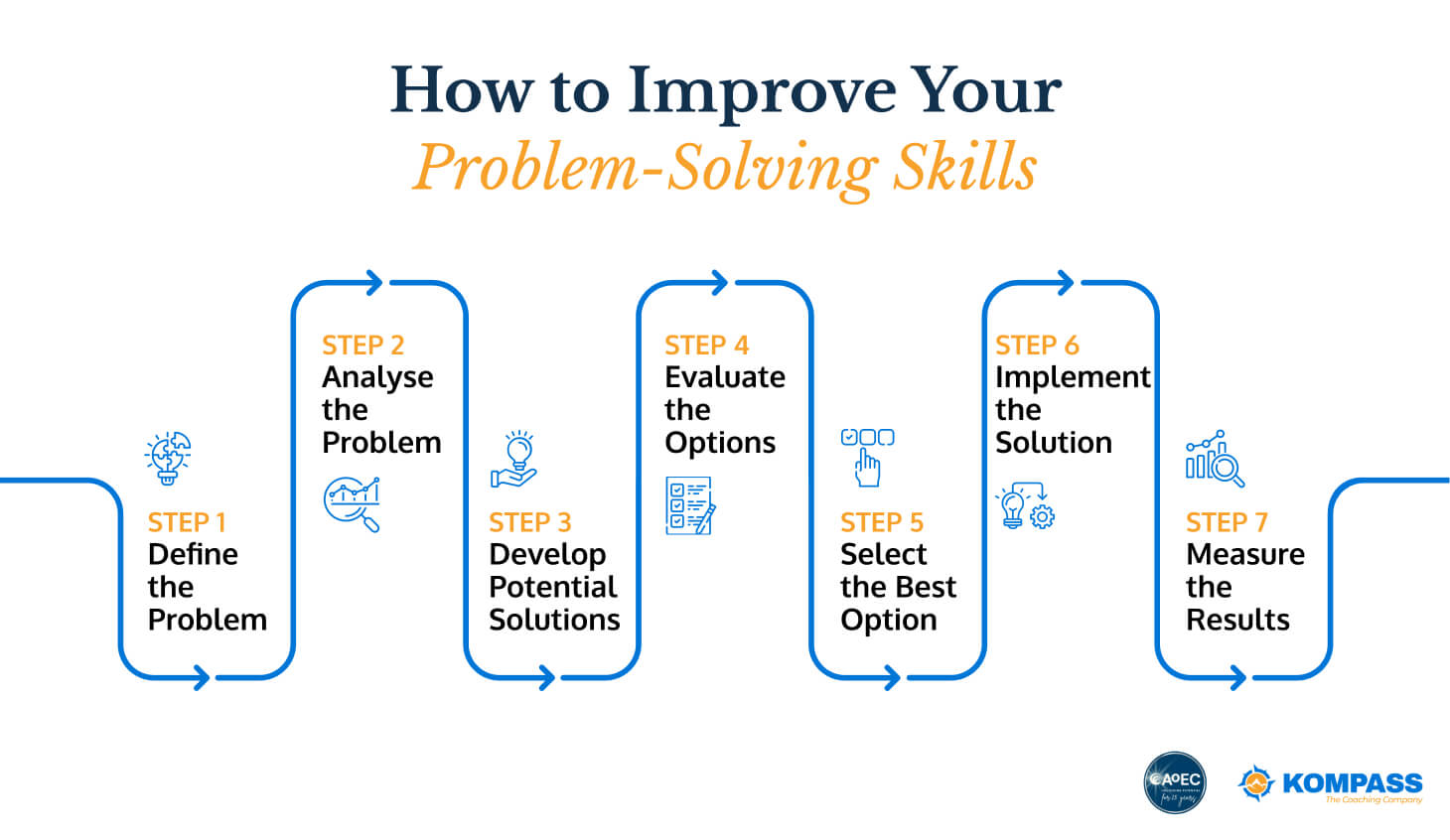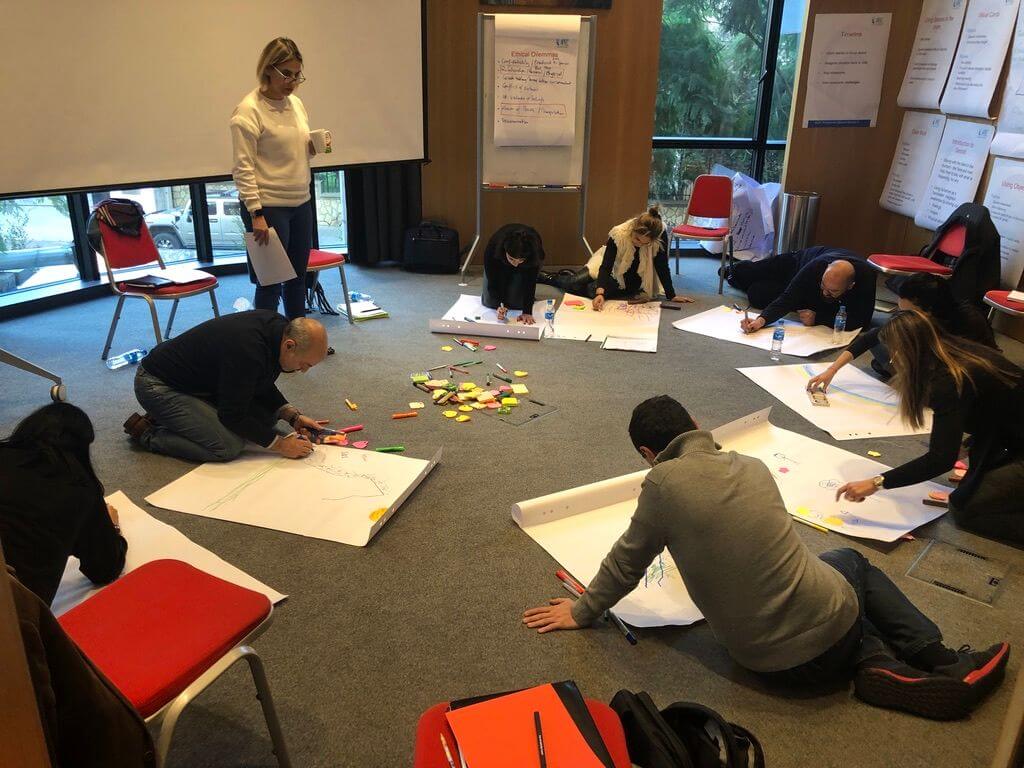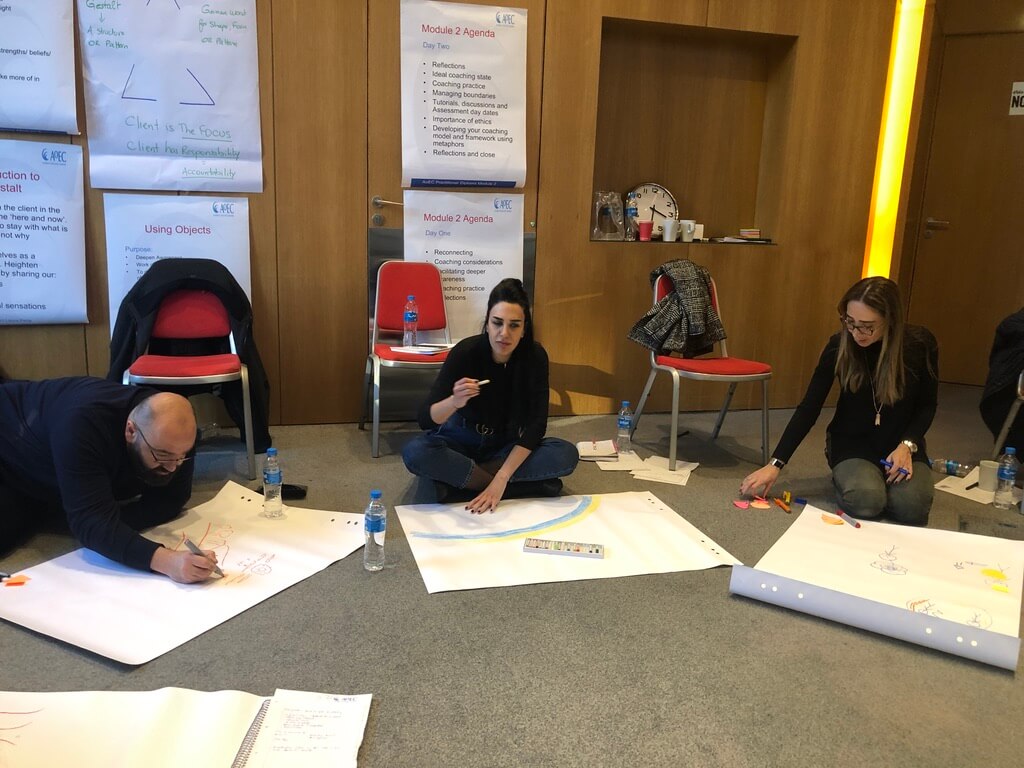Problem-solving is a vital skill for professionals and leaders. In any setting, challenges are unavoidable, and the ability to address them effectively can determine your success. Strong problem-solving skills enable you to assess situations and implement solutions with confidence.
By enhancing your problem-solving abilities, you sharpen your critical thinking and decision-making. Whether you’re leading a team, managing projects, or navigating unexpected challenges, mastering problem-solving allows you to make decisions that lead to positive outcomes.
This guide will provide you with actionable insights to strengthen your problem-solving abilities and apply them effectively in real-world scenarios.
What is Problem-Solving?
Problem-solving is the process of identifying an issue and its cause while determining an effective solution. It is a fundamental skill that helps professionals make sound decisions and overcome challenges in the workplace and beyond.
At its core, problem-solving requires critical thinking — the ability to consider different perspectives and anticipate potential outcomes. By applying logic, creativity, and sound judgement, professionals can tackle even the most complex challenges with confidence.
What Are Problem-Solving Skills?
Problem-solving skills are essential for professionals and leaders who often face complex situations requiring logical thinking and sound judgement. Strong problem-solving skills enable you to make better decisions, manage conflicts, and adapt to unexpected changes.

Examples of Key Problem-Solving Skills
1. Analysis
Analysis is the ability to break down a problem into smaller, manageable parts to understand it more clearly. By identifying the root cause, you can address issues at their source instead of merely treating the symptoms. Analytical thinking also involves using data and evidence to make well-informed decisions. Leaders who analyse problems effectively are more likely to develop solutions that prevent future issues.
2. Communication
Effective communication involves clearly expressing your thoughts, actively listening to others, and ensuring that all parties are aligned. When working with a diverse team, effective communication becomes even more essential, as it allows you to leverage different perspectives and experiences. Whether you’re leading a team or collaborating on ideas, strong communication fosters better understanding and more efficient decision-making.
3. Creativity
Creativity allows you to explore new perspectives and develop innovative solutions. Not all problems have straightforward answers, and thinking outside the box can lead to effective and unexpected results. Techniques such as brainstorming, mind mapping, or challenging assumptions can help generate creative ideas.
4. Research
Research is essential for gathering the right information to solve a problem. It involves finding reliable data and consulting relevant sources.
Effective researchers ask the right questions and validate information to ensure their decisions are well-informed. Strong research skills also help you anticipate potential risks and plan accordingly.
5. Decision-Making
Strong decision-makers rely on logic, data, and experience to make informed choices. In fast-paced environments, the ability to decide under pressure is crucial for driving progress and resolving challenges efficiently.
6. Adaptability
Adaptability is the ability to adjust your approach when situations change. Not every solution works as expected, and new challenges can emerge. Being adaptable means staying flexible, thinking creatively under pressure, and making necessary adjustments to keep moving forward.
7. Emotional Intelligence
Emotional intelligence (EQ) involves understanding and managing your emotions while recognising and responding to those of others. It helps you stay calm in challenging situations, resolve conflicts, and build productive relationships.
8. Resilience
Resilience is the ability to recover from setbacks and continue working toward solutions. Problems often involve uncertainty and trial-and-error, requiring determination and a positive mindset. Resilient professionals learn from failures and stay focused on achieving their goals.

7 Steps to Improve Your Problem-Solving Skills
Improving your problem-solving skills takes practice and a structured approach. By following these seven steps, you can grow more confident in your decision-making.
Step 1. Define the Problem
Start by identifying and clearly articulating the issue. A well-defined problem is easier to solve because it provides a clear focus. Ask yourself what is happening, why it matters, and who is affected. Setting realistic and measurable goals will help you stay on track and measure success.
Step 2. Analyze the Problem
Once you’ve defined the issue, take time to analyse it. Determine its root cause using techniques like the 5 Whys or a Fishbone Diagram. These methods help you go beyond surface-level symptoms and find the underlying reasons. The more accurately you analyse the problem, the more effective your solution will be.
Step 3. Develop Potential Solutions
Brainstorm a variety of possible solutions without immediately judging them. Encourage different perspectives and think creatively about what might work. Listing multiple options allows you to compare approaches and uncover ideas you may not have considered initially. Weigh the pros and cons of each idea to identify the most practical and achievable options.
Step 4. Evaluate the Options
With several potential solutions in mind, assess each one based on feasibility, impact, and available resources. Consider how long it would take to implement, the cost involved, and any risks. It’s also important to think about how each option will affect others and whether it aligns with your long-term goals.
Step 5. Select the Best Option
Choose the solution that offers the most effective and realistic outcome. This decision should be based on both the insights gained from your analysis and your understanding of the situation. Trust your judgement, but remain open to adjustments if new information arises.
Step 6. Implement the Solution
Once you’ve made your choice, develop an actionable plan. Outline the specific steps needed to put your solution into effect, assign responsibilities, and set a timeline. Clear communication is key at this stage to ensure everyone understands their role. Be prepared to monitor progress and address any unexpected challenges that arise.
Step 7. Measure the Results
After implementation, evaluate the outcome by measuring key performance indicators (KPIs) or other relevant metrics. Assess whether the solution resolved the problem as expected. Reflect on what worked well and what could have been done differently. Learning from this experience will strengthen your problem-solving skills and better prepare you for future challenges.

Ways to Highlight Problem-Solving Skills in Your Career
Effectively showcasing your problem-solving skills can set you apart in your career. Here’s how you can highlight these skills in your resume, cover letter, and job interviews.
-
In Your Resume
To demonstrate your problem-solving abilities in your resume, focus on specific examples of when you applied these skills. Use bullet points under your work experience to describe how you identified challenges, implemented solutions, and achieved results. Be clear and results-oriented by including measurable outcomes where possible.
In the skills section, include relevant terms like critical thinking, decision-making, conflict resolution, or analytical thinking. Tailor these skills to match the specific requirements of the role you’re applying for.
-
In Your Cover Letter
Your cover letter provides an opportunity to expand on a specific problem-solving experience. Choose a relevant example that aligns with the role you’re applying for. Briefly describe the challenge you faced, the actions you took, and the results you achieved. Focus on the value your solution brought to your organisation.
Keep your story concise and impactful. For example, if you helped reduce operational costs, mention the percentage of savings and how it benefited the company.
-
In Job Interviews
During interviews, you’re likely to be asked about your problem-solving skills. A common approach is using the STAR method (Situation, Task, Action, Result) to structure your response. This method helps you provide clear and concise answers while demonstrating your thought process.
-
Situation: Describe the specific challenge you faced.
-
Task: Explain your responsibility in addressing the problem.
-
Action: Detail the steps you took to resolve the issue.
-
Result: Share the outcome, highlighting measurable results if possible.

Improve Your Problem-Solving Skills with Coaching
Coaching can be a valuable way to strengthen your problem-solving skills. A coach provides guidance and supports you in developing effective strategies to assess challenges from different perspectives. Through constructive feedback and supportive conversations, coaching encourages you to think critically and make confident decisions.
If you’re looking to grow as a problem solver and build confidence in your decision-making, consider partnering with a coach. Investing in your development can have a lasting impact on both your career and your personal life.
Frequently Asked Questions
1. How can I describe my problem-solving skills?
You can describe your problem-solving skills by sharing examples of how you’ve identified challenges, developed solutions, and achieved results. Focus on specific experiences where your actions made a positive impact, especially in the workplace.
2. What are the 7 steps of problem-solving?
The 7 steps include defining the problem, analysing its root cause, brainstorming solutions, evaluating options, and selecting and implementing the best solution. Each step helps ensure a structured and effective approach to solving issues.
3. What is an example of good problem-solving skills?
A good example is resolving a project delay by identifying the cause, streamlining the workflow, and reallocating resources to meet deadlines.
4. Why are problem-solving skills important?
Problem-solving skills are essential because they enable individuals to tackle challenges effectively, make decisions, and contribute to the success of a business. Employers value these skills as they enhance productivity and drive innovation.
5. What are some examples of problem-solving skills for students?
Students often use problem-solving skills when managing group projects or finding creative solutions for assignments.







